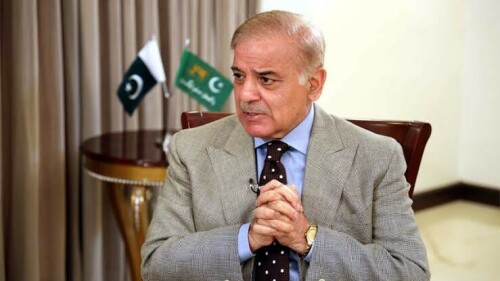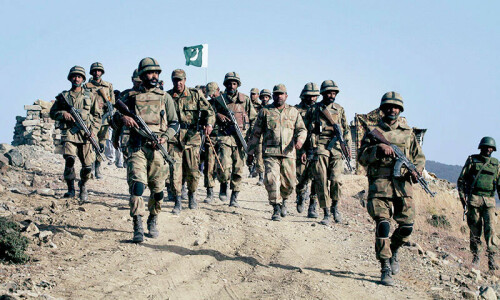ISLAMABAD, April 4: Nearly half of the country’s 160 million people are at risk of going short of food due to a surge in prices, the UN World Food Programme said on Friday.
The WFP survey covering the year to March showed the number of people deemed “food insecure” had risen 28 per cent to 77 million from 60 million in the previous year.
The WFP estimates that anyone consuming less than 2,350 calories per day is below the food security line.
Sahib Haq, an official with the WFP’s Vulnerability Analysis and Mapping Unit in Pakistan, said food prices rose at least 35 per cent in the past year compared with an 18 per cent rise in minimum wages.
“There is a very big gap between the increase in prices and increase in wages ... the purchasing power of the poor has gone down by almost 50 per cent,” Mr Haq said.
The latest findings comes a week after the World Bank urged Pakistan to make rapid adjustments and reforms to avert an economic crisis as it reels from the impact of high prices for petroleum and food.
The price of wheat flour in January was between Rs24-25 (38 US cents) per kg in three of Pakistan’s four provinces, compared with Rs15 per kg in January 2007, the WFP said.
Prices have since moderated to around Rs17 but are expected to shoot up 40 per cent or more in the coming months, according to grain industry officials.
“There will be a big crisis,” Mr Haq said. Wheat flour is used to make roti and naan, the flat unleavened breads that are the central component of the diet.
Pakistan consumes about 22 million tonnes of wheat a year.
Prices for rice, vegetables and cooking oil have also risen sharply, and the economic hardships faced by ordinary people played a big part in an election in February that resulted in President Pervez Musharraf’s political allies being thrown out of government.
The new coalition government, which took power last month, raised the support price it pays farmers to buy wheat to ensure adequate supplies, but Mr Haq said the move would result in sharply higher flour prices in months ahead.
The consumer price index, a key indicator of inflation, rose 11.25 per cent in February from a year ago, mainly due to food prices.
Due to the previous administration’s reluctance to reduce subsidies for food and fuel, the government is saddled with a widening fiscal deficit. While wanting to alleviate the hardship of the poor, the new government will face some painful economic choices.—Reuters















































Dear visitor, the comments section is undergoing an overhaul and will return soon.